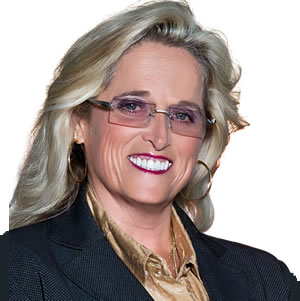Tracy Wood Podcast Transcript
Tracy Wood joins host Brian Thomas on The Digital Executive Podcast.
Welcome to Cort Technologies, home of the Digital Executive podcast.
Welcome to the Digital Executive. Today’s guest is Tracy Wood. Tracy Wood leads The DNA Company as Chief Executive Officer, bringing her extensive experience in healthcare management to the team. Her strategic vision and commitment to excellence ensure that the company continues to expand its impact on the global stage.
Tracy’s leadership is characterized by a strong focus on innovation, operational efficiency, and client satisfaction.
Brian Thomas: Well, good afternoon, Tracy. Welcome to the show.
Tracy Wood: Good afternoon, Brian. It’s a pleasure.
Brian Thomas: Absolutely, my friend. I appreciate it. And you’re hailing out of the great Southern California. They’re somewhere in the LA Orange County area, my old stomping ground, so I appreciate it. I’m in Kansas City and I’m suffering just like you with the heat today, but we can do this together.
So Tracy, I’m gonna jump into your first question. Can you share the defining moment in your healthcare management career that led you to redefine your professional path in functional genomics at the DNA company?
Tracy Wood: Sure Brian. So in mid 2022, the former CEO of the DNA company in Canada and one of their founders came to me to develop and expand their existing model entity, and they wanted it into the United States.
So they had experienced a lot of success in Canada. They wouldn’t be able to, you know, come out on the NASDAQ or be really a strong biotech without being in the us. And what drew me to them was they had a product that they were about to launch separate to their core product, and that was the D-N-A-P-G-X test, which is pharmacogenomics.
And pharmacogenomics is a tool that’s used to determine if someone is genetically predisposed to negative interactions with medications and prescriptions. And you may know this Brian, but the third leading cause of death in the United States are considered avoidable medical mistakes. And in fact, according to a major study published by John Hopkins in 2016, I think
shows that the medical errors cause 250,000 to 400,000 deaths per year in the United States and millions more suffer non-fatal harm.
From preventable errors, one of the top errors in that category right is wrong drug, wrong dose, and wrong administration, Ruth, and what was personal for me was, and most people that follow our company know this. My eldest sister Jackie, died in 2007 of a drug overdose, and Jackie was schizophrenic and she was poor, and she struggled with self-medicating to manage what was going on inside her head.
And she really was that trifecta of a patient that we don’t really want to have a lot of time for in the United States, and we certainly don’t have a lot of empathy for them. And the doctor that treated her was mixing so many medications, and as a licensed psychiatrist, really knew better than to do that.
But at the end of the day, in uh, January of 2007, he changed her medication. Three days later, she stopped breathing. She was only 45. So that was really a defining moment for me in my own personal life. And from then to now, I’ve continued on a path of finding, creating, and building affordable solutions so that people like my sister don’t have to die so young or through carelessness in a sick care system that’s broken.
Brian Thomas: Wow. I appreciate you sharing your story. That’s heartbreaking and, and my condolences to you of course, and I can see why you’re passionate about this, but I like the backstory, what you were attracted to in the, uh, pharmacogenomics. There’s a big reason, obviously you have a bigger reason than most people, but big reason is.
We do know about those avoidable medical mistakes. You know, I worked in healthcare myself in the technology space for a lot of years and we saw that stuff like that can happen, but I didn’t know the statistic was so high of 250 to 400,000 people per year. I think that’s a lot for the us, but um, oh yeah.
I appreciate the stats. Tracy, the DNA company is positioned as a pioneer of affordable precision medicine. How do you ensure high innovation standards while keeping services accessible?
Tracy Wood: That’s a great question, Brian. We have recruited and secured some of the most progressive things or in the functional genomic space.
Understanding precision medicine is not just about understanding. One person’s gene set. It’s understanding not only the gene set, but the expression of those genes and the functionality of the pathways. Putting it all together to take a look
at a person from a 360 degree view. And we take the time in the subjective data to include all of your backstory, your chronic history, all of those things.
Most patients, and you know this, you were in healthcare, most patients get seven minutes or less with a practitioner, and we built our programs to give these good folks as much time as they really need. To feel heard and understood, and if we can’t meet the patient where they are and help them exact the type of change that they need based on testing, not guessing, right?
We will try to work with that root cause, not just the symptomology. And then if we can’t help them, we will help find somebody that can support them. It’s really about knowing when to treat and knowing when to concierge for somebody.
Brian Thomas: Thank you. I appreciate that. I’d love that you taken that extra effort to hire some of the top minds in this space.
Precision medicine, of course, you built an awesome analytical program around it, collecting the right types of data and what’s really important that I heard. Have you really built your program also around the patient, not the administrative time and the other things that have to be done as far as overhead?
Absolutely. Tracy, you’ve made a point of emphasizing pharmacogenetics. Testing. In your discussions, what do you see as the biggest challenges and opportunities in making such testing widely accessible?
Tracy Wood: You know, most people don’t know PGX has been around since the fifties, and in fact, early observations came out of the 1930s when people were looking at African American soldiers during World War ii who developed a specific type of anemia after taking a malaria drug.
So some individuals could metabolize the drug and some could not, and that really led the scientists. In Europe at the time to kind of mature the research around it. In my opinion, PGX really is the cornerstone of precision tailored treatment. It’s based on your individual genetic profile. The caveat we see is you have to piggyback that to attest that understands your functional pathways.
In those profiles, the research speaks for itself, right? Adverse drug reactions. We know that. Three to 6% of all US Hospital admissions today are due to a failure in A PGX. We know 2.5 to 10.6 failure in PGX administration in Europe and millions are dying annually in low and middle income countries due to unsafe care.
There was a pretrial, a study that was done, it was randomized. It was 6,944 patients or something. And the PGX group, people that had been tested had 33% fewer ADRs, right? Adverse drug reactions, 33% fewer than the standard of care, which came in at 21.5% or 28.6. That was the Elliot trial. And we also looked at PGX profiling, reducing expense of rehospitalization that dropped 52%, emergency room visits dropped 42%, and then of course the ADRs dropped 52% more at 60 days.
You know, this was a large cohort with major depressive disorders, which is one of the things that PGX does specialize in those antidepressants, statins, some of the more commonly prescribed medications. And in the PGX testing, prescribing being shifted based on the genetic findings, reduced psychiatric hospitalizations by 39%, and ED visits by 34%.
So we really strive to keep ourselves as part of this conversation making PGX more affordable. There’s some people charging 12, $1,300 per PGX test, and we really want anyone that can take a swab into their mouth and do a little cheek swab and send it in in their home to be able to afford it, and then use that data in case they ever have a hospitalization or an emergency or a drug.
They don’t even know if works or if it doesn’t.
Brian Thomas: That’s amazing. I appreciate the backstory. I know we’ve learned a lot since the 1950s, of course, with this advanced research, but pharmacogenetics or PGX, as you called it, PGX profiling, has improved the reduction of these medical injuries or deaths and reduced hospitalizations as well, and I think that’s amazing.
So thank you for sharing all those stats. That’s really important. Tracy, the last question of the day as we look ahead, what developments in functional genomics excite you the most and how will they transform the future of personalized health?
Tracy Wood: At the DNA company, we are always adding to our functional genomics reports.
And in fact, we’re adding another 40 new genes that we have vetted and studied and researched this year alone, and the expression of those genes and interpretations. And one of the things that was very important to me was to build an app, allowing our ecosystem, our community, to constantly receive this new science as we have validated it, and we know it’s available.
They can use this as they age. They can use these new insights and they don’t have to retest. They don’t have to spend any more money, and they don’t have to come out of pocket or be inconvenienced. And our app is currently the only one of its kind that allows a patient who’s been tested in the last several years to gain those new insights as we learn them.
Our science is headed up by my Chief Science Officer, Dr. Krista Kosman. Dr. Kosman studied under the grandfather of Functional Genomics. As we all know, one of our founders, Dr. Mansur Mohammed and Dr. Mohamed worked tirelessly with Dr. Kosman as we continue to expand the algorithm in order to read the data.
So I think that we really have positioned ourselves to be at the forefront. Personalized health can save your life. Precision medicine is the only way we should be practicing. The old ideology of practicing based on aggregate statistics has shown us in that report from Johns Hopkins that we’re killing people and it’s unacceptable.
For any number of people to die prematurely, especially someone like my sister at 45 years old. So I think that my focus is to continue to grow our understanding, continue to gain more scientific, vetted insights, and share the information globally with the healthcare community at large. We want people to be able to afford to be well.
We want them to live longer, but quality longer lives. You know, we do webinars, right? We put out a magazine. We do a lot of recording. All of it’s education based. All of it’s free, and it’s easily digested by the community at large.
Brian Thomas: Thank you. I appreciate that. That really helps myself, my audience here, but I like how you’re constantly pushing that envelope, you know, always adding to your genomics reports every year, those expression of genes, the research you’re doing, et cetera, and gaining all these scientific, analytical insights as you said.
But when you have leaders like yourself and your chief science officer directing this research and collecting data, finding that precision medicine, not aggregate statistics is leading the way in reducing these harmful side effects, injuries, or death. So I appreciate that, Tracy. It was such a pleasure having you on today, and I look forward to speaking with you real soon.
Tracy Wood: It was my pleasure, Brian. Thanks so much for having me. Have a great rest of your day.
Brian Thomas: Bye for now. Take care.
Tracy Wood Podcast Transcript. Listen to the audio on the guest’s Podcast Page.











